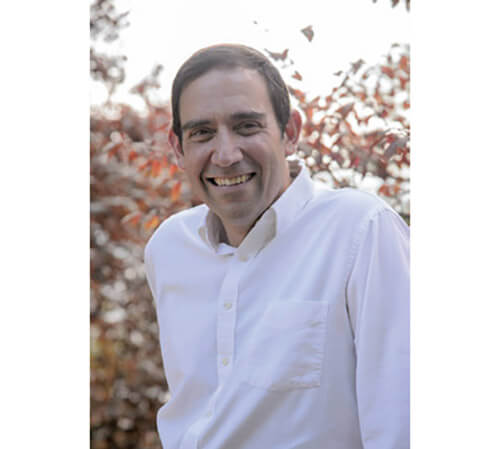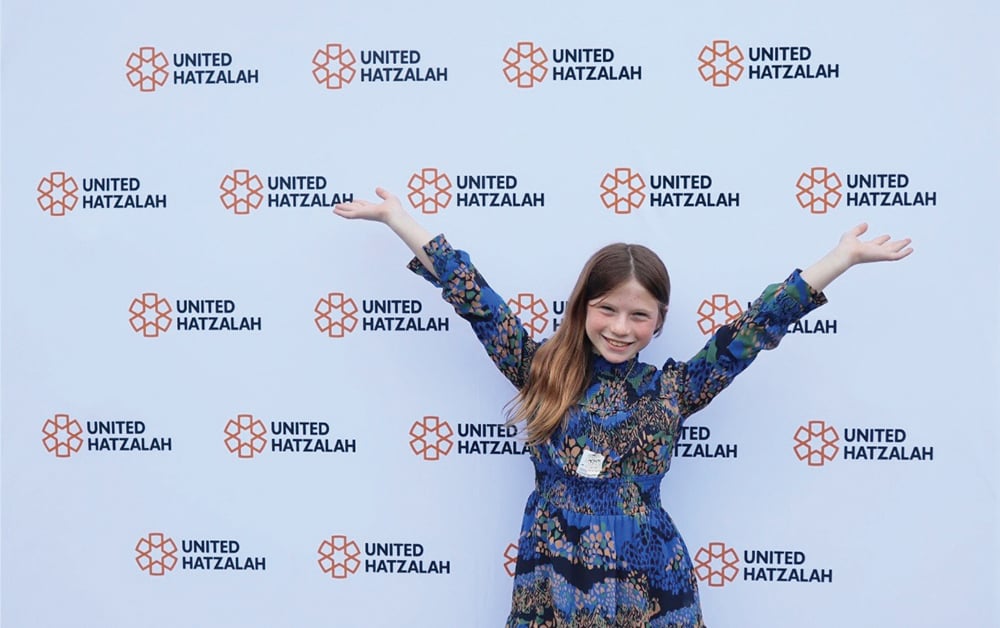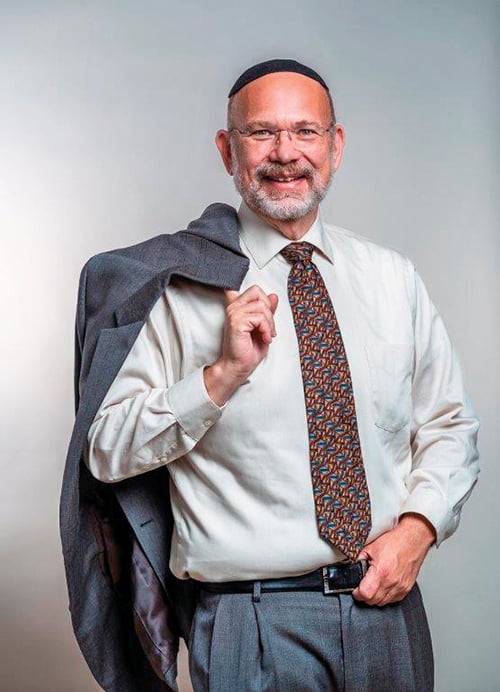
Repeatedly, Dovid Hamelech employs the metaphor of a tower or a fortress to portray redemption. This image of a tall edifice soaring above humanity aptly captures the power of redemption to reshape history. Beyond the metaphoric connotations of a tower, this image helps visualize the image of the Mikdash we all eagerly await. More specifically, in a poem in sefer Shmuel, Dovid describes this tower as a migdal, but in Tehillim (18) he employs the term magdil—which refers to the “process of construction” rather than the actual finished product. Sensing these different terms, Chazal comment that redemption or the “tower” doesn’t occur instantaneously but rather in stages—similar to the stages of a construction project. Though we all dream of the ultimate “finished product” or the “migdal,” we must also tolerate the process or the stages of magdil—the evolution of redemption. To capture this dichotomy between the terminus (migdol) and the evolutionary process (magdil), we recite the term migdal in Birkat Hamazon of Shabbat while proclaiming the term magdil during the week.
The same Midrash elaborates the reason for a staged redemption. It is staggered into waves because the Jewish people may not be ready for a complete or abrupt historical shift. After so many years of exile and so many centuries of a dark world under obscured Divine presence, we must gradually “ease” into a new world with vastly different conditions. Over the course of history we lost sovereignty, we abandoned our homeland, we struggled with national identity, and we suffered apparent historical irrelevance. God gradually restores these in “stages” so that we can properly acclimate as well as appreciate the various layers of restored identity. So far we have witnessed three chapters of redemption:
Chapter 1: 1948
In 1948 we experienced the first wave of modern Jewish redemption. It is difficult to determine why we merited this Divine intervention or whether that generation was even “deserving” of redemption. However, one fact is unmistakable: the Holocaust was the darkest moment of Jewish history since the destruction of the Second Temple. To be sure, the intervening millennia were laced with discrimination, hatred, pogroms, expulsions and various other forms of persecution. However, the systematic attempt to rid the entire world of Jews had never been attempted. Hitler conceived of global genocide—to the point that he maintained a list of 200 Albanian Jews while also possessing blueprints of synagogues in NYC. To the common eye it was almost impossible to discern the presence of God in 1945. As any regression of God’s presence constitutes a chilul Hashem, 1945 marked the worst chilul Hashem in 2,000 years.
A desecration of that magnitude demanded a proportionate restoration of His presence, or a kiddush Hashem of similar dimensions. The return of His people to their ancient homeland, though in no way “compensating for” or justifying the tragedy of the Holocaust, restored God’s presence in human history. The first wave of our redemption was primarily a kiddush Hashem upon the world stage.
Beyond the restoration of Divine presence, the founding of our state also solved the practical Jewish refugee crisis; homeless Jews who were being ported across the globe while repeatedly denied entry required a homeland. Even though the overwhelming majority of Jews didn’t return home in 1948, Jews finally had a safe haven of return.
Chapter 2: 1967
Nineteen years after our initial return, we experienced the second wave of redemption. In 1948, when Jews returned to Haifa and Tel Aviv, the world didn’t shudder. In fact, our return in 1948 “solved” the practical refugee crisis and soothed the world’s guilty conscience regarding the Holocaust. When Jews returned to Yerushalayim and to the hinterland of Jewish history in Judea and Samaria, the world took notice. Shamu amim yirgazun (the world trembled) at this reunion between Jews and Yerushalayim and between Jews and history. 1967 announced that Jews had been restored to the historical stage and that history was beginning to hurdle forward. Some nations celebrate our return while others are violently opposed. Either way, Jewish presence in Yerushalayim isn’t a “neutral” event. When God’s chosen people return to the locale of the origin of humanity as well as the station of the conclusion of history, the entire world “notices.”
However, it wasn’t just the international community that took notice. Boneh Yerushalayim Hashem nidchei Yisrael yechanes: God constructs Yerushalayim and gathers scattered Jews. Between 1948 and 1967, limited waves of Jews voyaged to the fledgling state; the return to Yerushalayim and to the biblical corridor stoked the Jewish imagination and launched both mass aliyah as well as large-scale tourism and visitation. Relatedly, millions of Russian Jews whose identity had been emasculated by the Communist regime rediscovered their Jewish heritage and were literally magnetized to their homeland. The second wave of our redemption—punctuated by the great miracles of the Six-Day War—amassed Jews back to their homeland while propelling the struggle to achieve internationally recognized sovereignty in the entire land of Jewish history.
Chapter 3: The Past 25 Years
About 25 years ago, the third wave of redemption began to emerge. Despite the supernatural interventions of 1948 and the historical revitalization of 1967, the state remained small and vulnerable—more pitied than respected. Over the past 25 years, Israel has emerged as a military superpower, as well as cultivating a robust democracy and a stout economy. Stabilizing a strong democratic society is even more impressive given our continuing struggle with security. In general, security concerns demand the surrender of personal liberties. Despite our constant security threats we have managed to construct a fairly stable democracy—in the very region of the world in which human liberty is suppressed and political freedom curtailed. Our ability to preserve the dignity of life and the sanctity of human liberty is itself a kiddush Hashem.
Our economic growth has aroused broad international curiosity. The tribe of Zevulun resided along the western coast of Israel and conducted maritime commerce. Moshe blesses them by cryptically describing “nations who will call a mountain” (amim har yikra’u). Explaining this oblique reference, Rashi asserts that non-Jewish trading partners would initially visit the coastline of Israel for purely commercial interests. Once arriving, their piqued curiosity would draw them to Yerushalayim to better understand the notion of a “One God”; Israel’s financial sway translated into religious encounter. In the modern era, having established itself as a tech hub, Israel attracts “trading partners” from around the globe. Intrigued by our people and its unique history, our “business partners” are quickly discovering the deep-rooted mission of Judaism that is blossoming in Israel.
Of course, the most dramatic element of this “modern emergence” is the unprecedented mushrooming of Torah study. Whenever Jews achieve national pride, Torah energy surges and Torah study expands. The exhilarating explosion of Torah study is the most cosmic element of this third stage of redemption.
Though the State of Israel has already revolutionized so many different sectors, two emergent developments are particularly intriguing. Having discovered off-shore gas reserves, and currently in the process of constructing an underwater pipeline to Europe, Israel is rapidly becoming a major world-supplier of energy—lending a modern meaning to our role as “ohr lagoyim,” a light for nations. We are literally providing light, heat and energy to the modern world. Additionally, Israel is currently spearheading a dramatic revolution in medical technology and cutting-edge procedures: a process that will radically alter worldwide medical treatment in the coming decades. Fueling human progress and curing human illness is an integral component of our calling as Jews: to teach the world about God and to advance human prosperity in accordance with His will.
In 2019 we are living through the exciting third stage of redemption and the third stage of kiddush Hashem, while awaiting so much more!!
By Moshe Taragin
Rabbi Moshe Taragin is a rebbe at Yeshivat Har Etzion located in Gush Etzion, where he resides.












